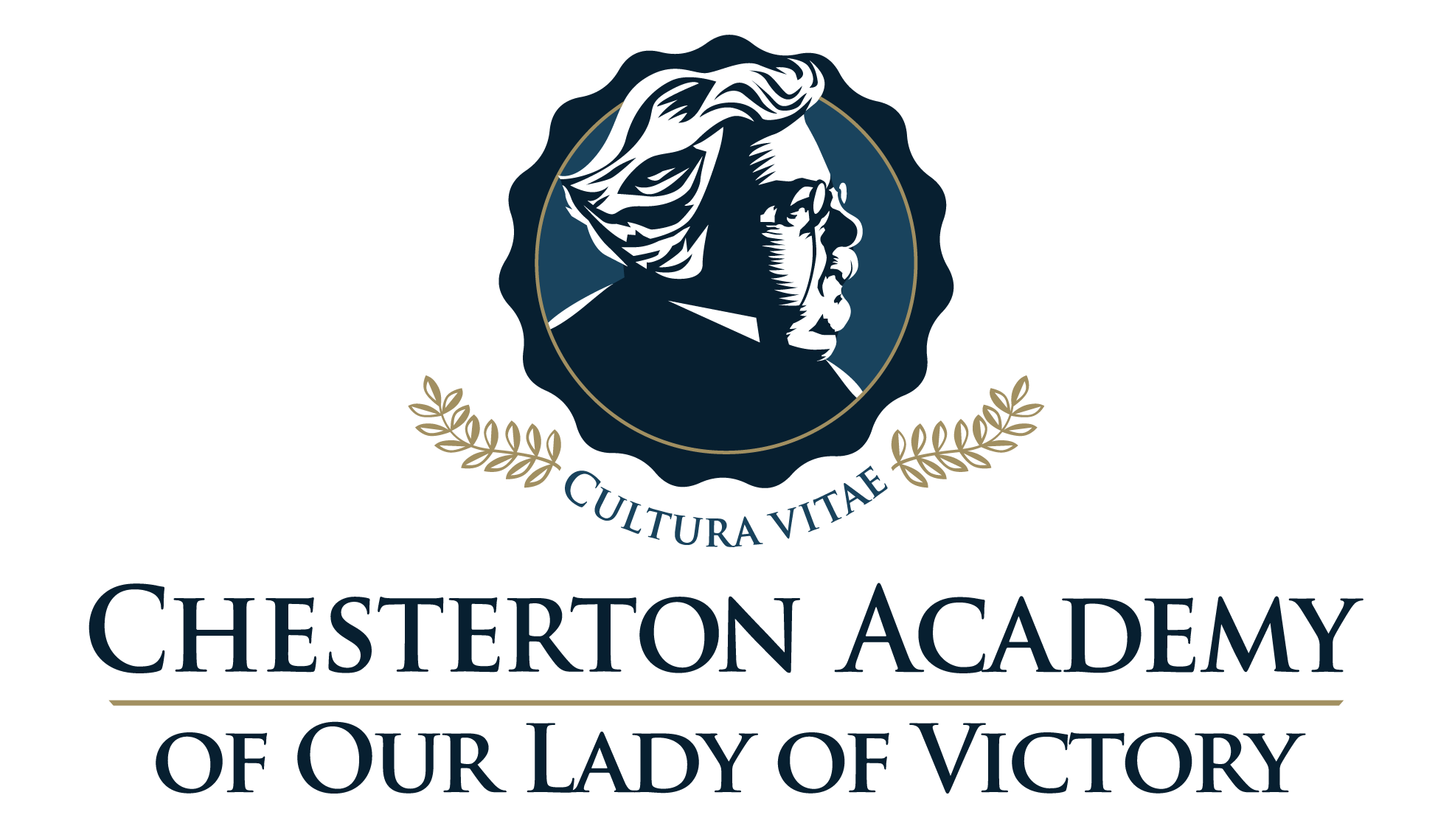The Humanities Program
Grade 9: Ancient World
Grade 10: Early Medieval Period
Grade 11: High Middle Ages to The Renaissance
Grade 12: Modern World
Literature
Our study of literature is tied to the study of history and the rest of the humanities. Students are first introduced to the classical epics of Homer and Virgil, then study early classics such as Augustine, Beowulf and Chaucer. As juniors, OLV students delve into great works by Dante, Cervantes, and Shakespeare, among others. Moving towards the modern period, OLV students tackle Dickens, Dostoevsky, Chesterton, Orwell, Jane Austen, Mary Shelley, C.S. Lewis, Sigrid Undset along with American literature. Each year, students explore the themes of these great works through Socratic discussion, essay writing and presentations. Reading and writing go hand in hand, and each student masters the art of the essay in their writing assignments in all subjects.
HISTORY
The history classes at Chesterton Academy form the backbone of our curriculum. The four-year history sequence covers ancient history through the Greek and Roman civilizations, early Church history, the Middle Ages, the Renaissance, and the Reformation and Counter-reformation. In senior year, students study the modern era, including the American and French Revolutions, the Industrial Revolution, the Communist Revolution, and the Cultural Revolution. Each history course is tailored to provide a colorful backdrop for literature, art, and science classes.
Philosophy
Philosophy, “the love of wisdom,” exercises the brain while it elevates the soul. The ability to understand abstract concepts leads to clear and systematic thinking in all things. We use philosophy to connect the humanities, but also to show its obvious connection to logic and mathematics. We study the development of philosophy from its classical roots focusing on Plato and Aristotle, its dramatic encounter with the early Church, its christening by St. Thomas Aquinas, and its deterioration in the modern era.
Theology
Theology, “the study of God,” is the context by which all other texts are studied. The principal theological texts studied are the Bible and the Catechism of the Catholic Church. We also read selections from the Church Fathers, Documents of the Church Councils, and Papal Encyclicals.
Foreign Language
OLV students are required to study Latin during their freshman and sophomore years. During those foundational years, OLV students learn Latin using the Henle method. They read and translate Caesar’s Gallic Wars along with other original texts. OLV upperclassman may elect to continue with Advanced Latin (Latin 3 and 4) or study Spanish 1 and 2. The OLV language programs emphasize translation as well as an appreciation of Latin or Spanish culture. Latin 4 students translate children’s books into Latin and create bound folio editions of their final projects. All students also take the National Latin Exam in which OLV students have historically excelled.
SPEECH & DEBATE
OLV students study speech & debate their sophomore year. Students spend the first part of the course learning the art of persuasion and practicing the skills of logos, pathos, and ethos. With an emphasis on multiple and frequent opportunities for public speaking before the class, including both original and historic short speeches, the quarter culminates in a team-policy style tournament on a chosen policy topic. Students’ diligence, creativity, and careful research bear the fruits of success, increased comfort with public speaking, and a greater appreciation for both sides of important and complex issues.

